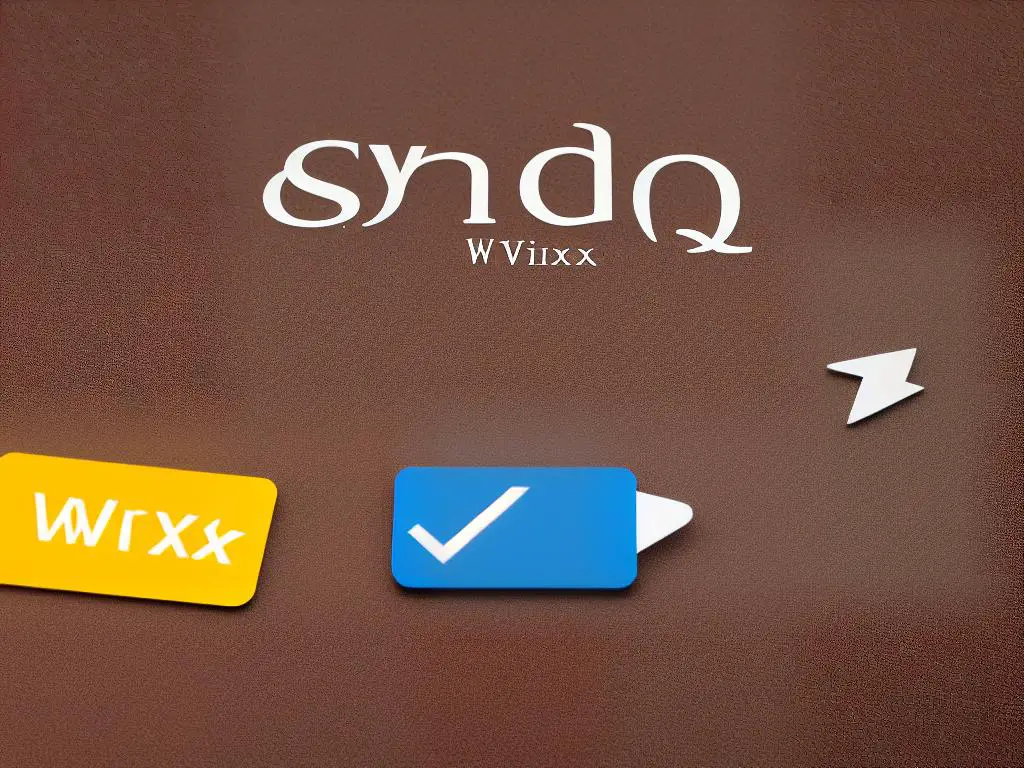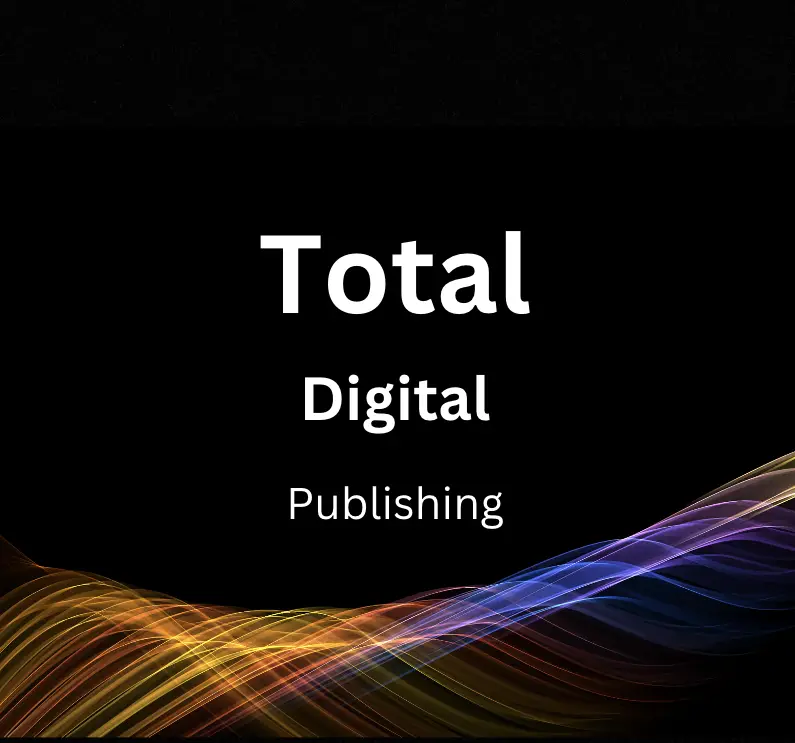As a beginner stepping into the world of website building, choosing the right platform can be a daunting task. Among the sea of options available, Wix and WordPress have emerged as leading contenders catering to different needs. This essay delves deep into comparing these two popular platforms, discussing their ease of use, customization and flexibility, pricing structures, e-commerce capabilities, SEO and marketing tools, customer support, and security measures to help you make an informed decision.
Ease of Use
When comparing the ease of use for beginners between Wix and WordPress, there are several factors to consider, such as setting up a website, choosing themes, adding content, and overall navigation. Wix is known for its user-friendly, drag-and-drop website builder that enables even beginners to create a visually appealing website quickly and easily. WordPress, on the other hand, may require a bit more technical know-how but offers greater flexibility and customization options that may appeal to more advanced users.In terms of setting up a website, Wix provides a simple and quick process for beginners. Users can choose from hundreds of professionally-designed templates that are automatically optimized for mobile devices. The drag-and-drop interface makes it easy to customize the template with no coding knowledge required. On the other hand, WordPress involves a more complex setup process since it requires users to purchase a domain and hosting plan before installing the WordPress software. However, many hosting providers offer ‘one-click’ WordPress installation, making it easier for beginners to get started.When it comes to choosing themes, both Wix and WordPress have a wide selection of options. Wix offers hundreds of free, stylish templates divided into various categories to suit the needs of different users. Moreover, these templates are fully customizable within the drag-and-drop builder. In contrast, WordPress has thousands of free and premium themes available, giving users more options to choose from. However, customizing these themes may demand some level of coding knowledge or the use of plugins, which could be intimidating for beginners.Adding content to a website is a crucial aspect, and Wix excels in this area with its intuitive editor that allows users to quickly add text, images, videos, and other elements to their site. The drag-and-drop interface enables users to edit the content directly on the page, providing a simplified and visual approach. On the contrary, WordPress employs a block-based editor called the Gutenberg that enables users to create and customize content in blocks. While it allows for more control over the layout of the content, it may not be as straightforward for beginners compared to Wix’s editor.Regarding overall navigation and user experience, Wix’s simple interface and built-in features make it easy for beginners to manage their sites. Everything from designing the site to managing the content and settings is just a few clicks away. In comparison, WordPress has a steeper learning curve due to its extensive functionality and customization options. Beginners may find it more challenging to navigate through the numerous settings, plugins, and themes available on the platform. However, the trade-off is that WordPress offers more flexibility and greater control over the website’s appearance and functionality.In conclusion, Wix stands out as the more beginner-friendly option between the two due to its easy setup process, drag-and-drop editing, and intuitive user interface. However, WordPress offers a more robust platform that provides extensive customization options and greater flexibility for users willing to invest the time to learn its features. Ultimately, beginners should consider their specific needs and preferences when choosing between Wix and WordPress for their website-building endeavors.

Customization and Flexibility
When comparing Wix and WordPress for beginners looking to create a professional and customizable website, it is essential to evaluate the customization options, built-in features, and accessibility to third-party plugins, themes, and other add-ons that both platforms offer. Thus, enabling users to make an informed decision based on their specific needs and preferences, ensuring a smooth and efficient website-building experience.The Wix platform offers a range of built-in templates, design features, and applications that allow users to create visually appealing websites without any coding experience. With its user-friendly drag-and-drop editor, Wix provides various customization capabilities, such as changing font types, altering colors, and adjusting the layout of pages. Moreover, users can access the Wix App Market to find additional tools and functionalities for their website, such as e-commerce, marketing, or social media integrations. However, the overall selection of features and applications in Wix is limited compared to WordPress, especially for advanced users.In contrast, WordPress offers a more expansive variety of customization options, benefiting from thousands of themes and over 50,000 plugins available in its library. This extensive selection enables users to find the perfect theme and plugin combination for their websites, tailoring their design and functionality to fit their specific needs. Since WordPress has an open-source platform, users have the freedom to alter the code of their website, allowing for even further customization. This may make it particularly attractive to those with web development experience.Third-party developers play a significant role in expanding the customization options for both Wix and WordPress through their plugins, themes, and other add-ons. Wix users can access several third-party apps through the Wix App Market, which can enhance the functionality of their website. However, the number of apps available is relatively small compared to what WordPress offers.The WordPress plugin ecosystem is vast, with developers from around the world continuously contributing new plugins, themes, and features. This allows for endless possibilities in terms of customization and functionality, which makes it a popular choice for websites with complex or unique requirements. However, with such a large selection of plugins, users should exercise caution when installing third-party additions, as not all plugins may be compatible, well-supported, or secure. It’s essential to research and review each plugin to ensure that it’s reputable and suitable for a user’s specific needs.An essential aspect to consider when comparing customization options and flexibility for Wix and WordPress is the ease of use and learning curve for beginners. While Wix excels in providing an intuitive and easy-to-use environment for those with little web development experience, the customizability and diverse ecosystem of WordPress may require a steeper learning curve. Users may need to invest more time in learning the intricacies of the platform, as well as the proper installation and management of themes and plugins, to make full use of WordPress’s customization potential.

Pricing and Costs
Another factor to consider when deciding between Wix and WordPress is the pricing structures associated with subscription plans, domain registration, premium themes, plugins, and add-ons. Wix operates on a freemium model, allowing users to create a basic website for free, though it includes Wix branding. To remove the Wix ads and access additional features such as increased storage space and bandwidth, users need to upgrade to a premium plan, which ranges from $14 to $56 per month. Wix also offers a free domain for one year with any premium plan, but charges $14.95 per year thereafter.
On the other hand, WordPress is an open-source platform that offers a free WordPress.com account with basic functionalities, as well as self-hosted WordPress.org sites which require web hosting. The cost of web hosting can vary depending on the provider chosen, but it typically ranges from $3 to $20 per month. WordPress.com also offers premium subscription plans that start from $4 per month and can go up to $45 per month for e-commerce websites. As for domain registration, users will have to purchase a domain separately, which can cost between $10 to $15 per year.
Regarding premium themes, Wix offers a significant number of themes that are built-in and available to all users for free. However, users may purchase third-party themes from the Wix marketplace which can range from $50 to $200 for one-time purchases. In contrast, WordPress offers thousands of free themes in its repository, as well as premium themes that can be bought from third-party developers. The price of premium WordPress themes can vary dramatically, with a range of anywhere from $25 to $250 one-time purchases.
When it comes to plugins and add-ons, Wix has its own app market, where users can find both free and premium apps to enhance their website’s functionality. The prices for these premium apps can range from a one-time fee of $5 to monthly subscriptions of up to $20. In comparison, WordPress relies heavily on plugins for added functionality and offers over 55,000 free plugins in its repository. However, premium plugins can also be purchased, and their pricing can be much more diverse, ranging from $15 to over $200, depending on the functionality and features offered.
As a beginner exploring the world of website building, the choice between Wix and WordPress can be a challenging one. While WordPress is a self-hosted platform that offers more flexibility and control over your website’s features and customizability, it may come with a steeper learning curve compared to Wix. On the other hand, Wix provides a more user-friendly experience that may be more suitable for those who are new to web design. Ultimately, you should weigh the benefits of each platform against your budget and desired website outcome before committing to either Wix or WordPress for your web design journey.

E-commerce Capabilities
When considering e-commerce capabilities, both Wix and WordPress offer a variety of options that can simplify the process for beginners. Wix provides an all-in-one solution with its Wix Stores platform, making it relatively easy to set up and manage an online store. This platform offers a range of pre-designed templates specifically tailored for different types of businesses and allows for seamless integration of various payment gateways, such as PayPal, Stripe, and Square, without any technical knowledge required. Meanwhile, WordPress gives you more flexibility and customization for your online store, though it may require a bit more effort to set up. By evaluating your individual needs and level of expertise, you can determine which platform will be the best fit for your e-commerce venture.
On the other hand, WordPress allows you to create an e-commerce store using its popular plugin, WooCommerce. This powerful plugin can be easily installed on your website, allowing you to create a customizable and feature-rich online store. However, the setup process might be slightly more complicated for beginners compared to Wix, as it requires manual installation and configuration of various add-ons. But once set up, WooCommerce provides access to a wide range of payment gateways, shipping options, and customer management tools.When it comes to order management and inventory control, both Wix and WordPress provide efficient solutions for beginners. Wix Stores gives you the ability to track your inventory, manage orders, apply taxes, and offer various shipping options. The platform also offers an intuitive dashboard for keeping track of your online store’s performance and managing your customers’ information.Similarly, WooCommerce offers comprehensive inventory management and customer relationship management tools, allowing you to manage orders, track inventory levels, and view detailed reports about your store’s performance. However, some advanced features might require the installation of additional plugins, which can make the overall setup process slightly more complex for beginners.For beginners considering scalability and customization, WordPress has a clear advantage over Wix, particularly for those who plan to expand their online store in the future. The wide range of plugins and themes available for WordPress allows for greater customization and adaptability. This means that as your business grows, your online store can easily be adapted to meet your evolving needs. While Wix is beginner-friendly and simple to set up, its more closed ecosystem and limited application integrations may not offer the same level of flexibility.

SEO and Marketing
In terms of SEO tools and marketing options, there is a notable distinction between Wix and WordPress. As a fully hosted platform, Wix provides built-in SEO tools specifically tailored for beginners. These tools simplify the SEO process, allowing users to easily add meta titles, descriptions, and keywords to their web pages. Furthermore, Wix features a user-friendly SEO Wizard that generates a personalized SEO plan for your website by analyzing your content and keywords. This is particularly beneficial for beginners who require guidance on where to begin.On the other hand, WordPress, as a self-hosted platform, offers a greater level of customization and flexibility in optimizing your website for search engine rankings. There is a plethora of SEO plugins available for WordPress, with some of the most popular including Yoast SEO, All-in-One SEO Pack, and Rank Math. These plugins enhance the native WordPress SEO features and provide comprehensive on-page optimization options. This allows users to fine-tune their SEO strategies and drive more organic traffic to their website.In terms of marketing options, Wix offers a wide range of built-in tools designed to help businesses promote their website, such as email marketing and social media integration. Additionally, Wix provides users with access to Ascend, an all-in-one marketing suite that includes tools for managing email campaigns, automating social media posts, and optimizing websites for mobile devices. This makes it easy for beginners to start promoting their business without needing to install and configure third-party tools.WordPress, however, requires the use of plugins to access most marketing features. Some popular marketing plugins for WordPress include Jetpack, which offers social media integration and email marketing, and Mailchimp for WordPress, which helps manage email campaigns. Although these plugins may require more setup and management compared to Wix’s built-in tools, they offer greater flexibility, customization and scalability for businesses seeking to optimize their marketing strategy.When comparing Wix and WordPress for beginners, both platforms offer different levels of effectiveness in their SEO tools and marketing options. The choice ultimately depends on the user’s experience level and their preference for customization. Beginners may find Wix’s built-in SEO tools and streamlined marketing options more than enough, allowing them to concentrate on building their website without needing to worry about optimization. On the other hand, those who want a more in-depth approach to SEO and marketing will find WordPress’s extensive plugin library and flexibility to be more suitable for their needs, giving them the resources required to optimize their online presence and drive more traffic to their site.

Customer Support and Resources
Another important factor to consider when deciding between Wix and WordPress for beginners is the level of customer support provided by each platform. Wix is known for its dedicated customer support, offering 24/7 assistance via phone or email. This can be extremely beneficial for beginners who may need immediate help with technical issues or general inquiries. To further support users, Wix maintains a comprehensive knowledge base complete with a range of articles, how-to guides, and video tutorials that cover various topics related to website creation and management.WordPress, on the other hand, doesn’t offer a dedicated customer support team in the same way that Wix does, given its open-source nature. However, it does have a large and active community behind it, which means you can find a vast array of resources online by simply searching for your query or problem. This includes an extensive range of tutorials, articles, and community forums where you can ask questions and get answers from experienced WordPress users and developers.Another important aspect to consider is the availability of tutorials for beginners. Both Wix and WordPress offer a plethora of tutorials for beginners to help navigate through various aspects of website building. Wix provides a number of in-platform tutorials and guides throughout the website creation process, making it easy for users to follow step-by-step instructions while they build their website. In addition, the Wix Help Center offers articles and videos addressing a wide range of topics, from adding specific features to improving website performance.On the other hand, WordPress also boasts an extensive library of learning resources, not only through the official WordPress Codex but also through various blogs and websites offering free and premium courses. This includes the popular WPBeginner blog, which is dedicated to providing resources specifically for new WordPress users. Moreover, numerous WordPress meetups and WordCamps are held around the world, enabling beginners to connect with the global WordPress community and learn from experienced professionals.Both Wix and WordPress provide extensive support for beginners through their forums and community spaces. Users can access the Wix Forum, where they can connect with fellow users and ask questions, seek advice, and share their experiences. WordPress also offers a comprehensive network of dedicated forums, catering to different levels of expertise and a variety of topics. As a result, beginners have a wealth of resources at their disposal, ensuring a smooth and well-supported website-building journey.

Security and Backup
Regarding security, Wix and WordPress both prioritize the protection of their users’ websites from various online threats. Wix employs a comprehensive approach to security with a dedicated cybersecurity team monitoring their systems around the clock, ensuring data is safeguarded from unauthorized access. Furthermore, Wix automatically handles updates for their SSL secured apps and tools, eliminating the need for users to manage security updates personally. Similarly, WordPress invests in solid security measures, allowing users to focus on building their websites with confidence.On the other hand, WordPress is an open-source platform, which means it relies on its community of developers to maintain and improve its security features. While this offers opportunities for customization and flexibility, it can also expose websites to potential security threats if not managed properly. Users are responsible for regularly updating their themes, plugins, and core files to ensure that their site remains secure. Moreover, installing security plugins and partnering with reputable hosting providers can further protect WordPress websites against hacking attempts and data breaches.Regarding backup options, Wix includes an automatic backup feature that saves multiple versions of a website, allowing users to restore their site to a previous version easily if needed. These backups are stored on Wix’s secure servers and can be accessed through the platform’s dashboard, providing peace of mind for those concerned about potential data loss. While Wix’s automatic backup feature is convenient, it’s crucial to keep in mind that users can’t export their website data to another platform as easily, limiting migration options.WordPress, conversely, does not include built-in backup functionality in its basic installation, but there are various plugin options available that allow users to create regular backups of their website. Some popular backup plugins include UpdraftPlus, BackupBuddy, and VaultPress. These plugins can be configured to save backups to a user’s preferred storage location, such as an external hard drive or cloud storage service. It’s essential to set up a reliable backup system for a WordPress website to guarantee data safety in case of security breaches, server crashes, or other potential threats. In addition, WordPress users can easily migrate their website data to another platform or hosting provider if needed.While both Wix and WordPress take security measures to protect their users’ websites, the responsibility falls on the site owner to ensure their website is as secure as possible. Wix provides a more hands-off approach, automatically handling updates and backups on behalf of the user, whereas WordPress offers more flexibility through plugins and user-controlled security measures. Ultimately, it’s crucial for beginners to familiarize themselves with their chosen platform’s security features, backup options, and best practices to safeguard their website against potential security threats and data loss.

After understanding the nuances of both Wix and WordPress and their respective offerings, it becomes clear that the choice between the two depends on your individual needs and preferences. While Wix may be better suited for beginners seeking a more user-friendly, all-inclusive package, WordPress stands out for its endless customization capabilities and robust plugin ecosystem. Regardless of your choice, both platforms have established themselves as powerful tools, capable of helping you build and maintain an online presence that reflects your vision.

